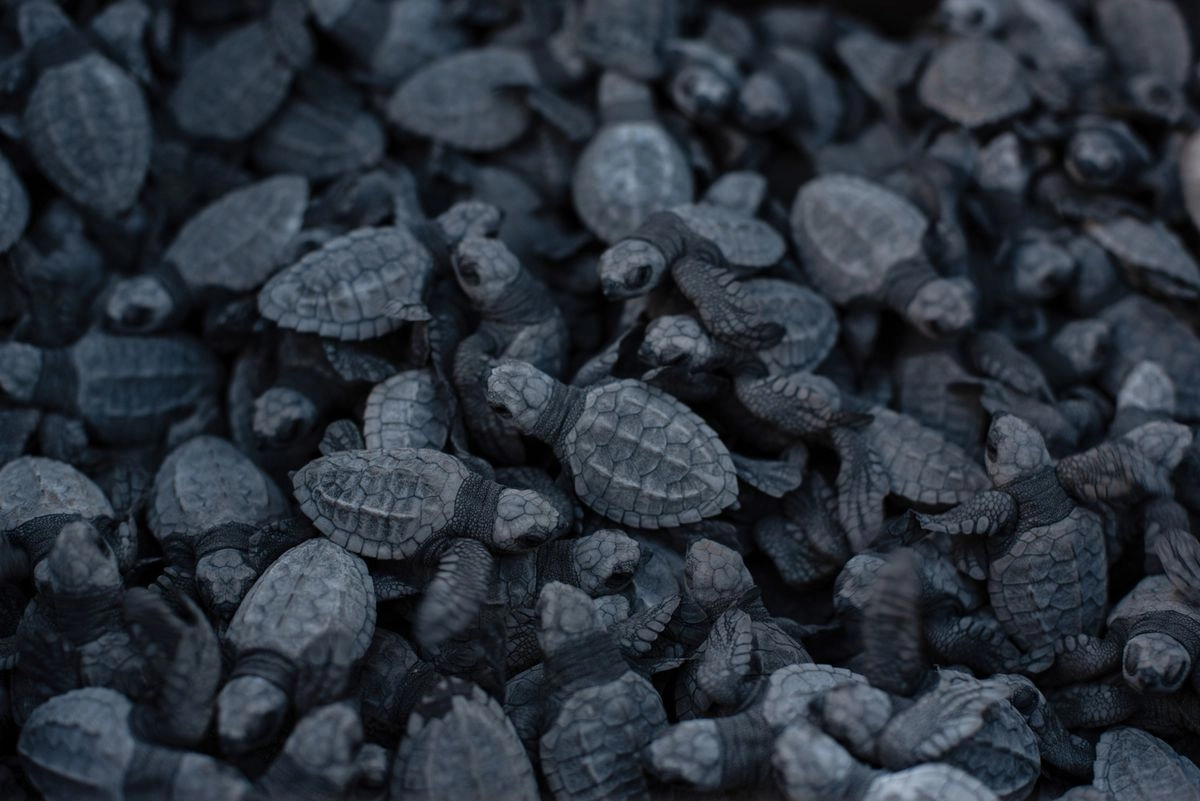Mexico City, Mexico — A disturbing video shared by Dr. Alfonso Vázquez Botello, a distinguished researcher at the Institute of Marine Sciences and Limnology of the National Autonomous University of Mexico (UNAM), has exposed the cruelty of sea turtle traffickers in Quintana Roo. The footage shows a turtle immobilized among garbage, left in that condition for days. The same video also highlights the potential ecological damage to Cozumel’s biodiversity if a new cruise ship dock is constructed near the Mesoamerican Barrier Reef, already endangered by global warming and the massive influx of sargassum in the Mexican Caribbean.
A Crime with Irreversible Consequences
Mariana Boy Tamborrell, head of Mexico’s Federal Attorney for Environmental Protection (Profepa), emphasized in the latest issue of La Jornada Ecológica that illegal wildlife trafficking is a punishable crime under current legislation, with irreversible impacts on species populations and the nation’s natural heritage. Officials from Profepa, along with researchers Jorge I. Mendoza Marroquín from the Universidad Michoacana de San Nicolás de Hidalgo and Professor Javier Enrique Sosa-Escalante of the Mexican Association of Mastozoology, detailed the scope of this illicit trade, including the species, regions, methods, and participants involved.
The lucrative black market operates extensively through social media, with Mexico serving as a key hub. Among the most targeted species are two-toed sloths, spider monkeys, white-faced capuchins, howler monkeys, helmeted turtles, toucans, raccoons, boas, coral snakes, pit vipers, anteaters, iguanas, and jaguars. Additionally, 22 species of parrots, parakeets, and macaws—classified as at risk of extinction—are frequently trafficked.
Flora Also Under Siege
The illegal trade extends beyond fauna, threatening Mexico’s plant life. Cacti, fungi, and orchids face habitat destruction due to agricultural expansion, deforestation, and mining. In Veracruz, the striking orange flower is particularly sought after, though it dies outside its natural environment. Marine life, including the vaquita, sea cucumbers, turtles, and corals, is also heavily exploited.
Mexico City: The Primary Market
The capital serves as the main marketplace for trafficked species, with some vendors offering digital catalogs where buyers can select from exotic animals—even lions, tigers, jaguars, pumas, and black bears. These catalogs circulate on social media, with orders delivered directly to clients.
Despite government efforts to dismantle the extraction, transport, and sale networks, legal gaps and resource shortages hinder enforcement. Experts stress that environmental education—both in and out of classrooms—is critical to combating this issue. The public must understand that wild animals are not ornaments or pets and belong in their natural habitats.
A Call to Action
Under the slogan “Do not buy, do not gift, do not extract: Your home is not their home. They are not pets!” Profepa officials and researchers urge citizens to reject participation in this destructive chain and instead report illegal activities to safeguard Mexico’s wildlife.
Discover more from Riviera Maya News & Events
Subscribe to get the latest posts sent to your email.
